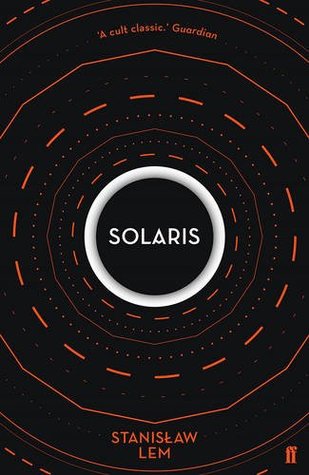Adventures in Bookland: Solaris by Stanislaw Lem

This is not something I, a writer, say lightly but, to be honest, I preferred the film. When I say film, I don’t mean the 2002 George Clooney vehicle, but the 1972 version directed by Andrei Tarkovsky. I was about 16 at the time when I saw it on TV. I switched channel – at that time you still had to press buttons to change channels – and I found myself transfixed. I didn’t have a clue what was going on – Tarkovsky’s style of long, close up shots on silent actors was something I had never seen before – but the film held me as few have before or since. Images from it remained with me for years. But most of all, the image of Solaris itself, the mysterious, sentient ocean, attempting to communicate – possibly – with the men orbiting it on the space station. The final image of the film, as the hero finds himself on an island on the living ocean, stuck in my imagination in a way that few other images and experiences from so long ago have. Having read Lem’s original story, I regret to say that nothing in the novel made anything like the impression that Tarkovsky’s film did. Thinking about it, I suppose it’s obvious. Lem was trying to capture a living sentient ocean in words, Tarkovsky was doing it with pictures. Since living sentient oceans don’t do words but, in this case at least, do make people simulations and ultimately even little islands, then the picture version had an inherent advantage. Add in somebody with Tarkovsky’s vision, and this is a good example of a film outstripping its source material.

0 Comments